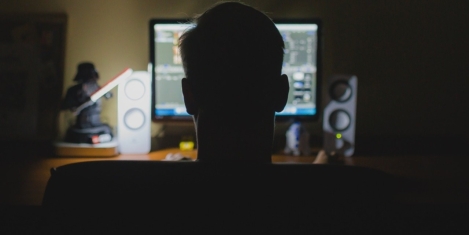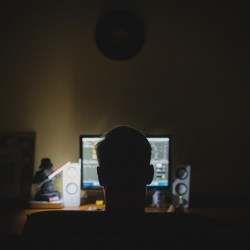To provide the best experiences, we use technologies like cookies to store and/or access device information. Consenting to these technologies will allow us to process data such as browsing behaviour or unique IDs on this site. Not consenting or withdrawing consent, may adversely affect certain features and functions.
The technical storage or access is strictly necessary for the legitimate purpose of enabling the use of a specific service explicitly requested by the subscriber or user, or for the sole purpose of carrying out the transmission of a communication over an electronic communications network.
The technical storage or access is necessary for the legitimate purpose of storing preferences that are not requested by the subscriber or user.
The technical storage or access that is used exclusively for statistical purposes.
The technical storage or access that is used exclusively for anonymous statistical purposes. Without a subpoena, voluntary compliance on the part of your Internet Service Provider, or additional records from a third party, information stored or retrieved for this purpose alone cannot usually be used to identify you.
The technical storage or access is required to create user profiles to send advertising, or to track the user on a website or across several websites for similar marketing purposes.
 A new report from the RSA and Vitality warns of the potentially serious impact on the long-term physical and mental health of employees. The authors claim that the ‘long lockdown effect’ should lead employers to see health and wellbeing as important strategic issues and place them on the company’s risk registers. With the shift to more flexible working cultures now set to continue, Healthy Hybrid, a Blueprint for Business, claims to shine a light on the health impact of successive lockdowns on homeworkers. (more…)
A new report from the RSA and Vitality warns of the potentially serious impact on the long-term physical and mental health of employees. The authors claim that the ‘long lockdown effect’ should lead employers to see health and wellbeing as important strategic issues and place them on the company’s risk registers. With the shift to more flexible working cultures now set to continue, Healthy Hybrid, a Blueprint for Business, claims to shine a light on the health impact of successive lockdowns on homeworkers. (more…)






 When the global pandemic struck last year, many companies were forced to close offices and enable employees to work remotely – bringing forward their digital transformation roadmap by a good few year. A year on, and while it seems that the Covid-19 restrictions are reducing, there is unlikely to be a complete shift back to the office. Instead, most companies are now planning to adopt a hybrid work model; with employees working a mix of in-office or remotely.
When the global pandemic struck last year, many companies were forced to close offices and enable employees to work remotely – bringing forward their digital transformation roadmap by a good few year. A year on, and while it seems that the Covid-19 restrictions are reducing, there is unlikely to be a complete shift back to the office. Instead, most companies are now planning to adopt a hybrid work model; with employees working a mix of in-office or remotely. 


 A survey released by
A survey released by 
 As April is
As April is 
 As the world emerges from the grip of the pandemic, the
As the world emerges from the grip of the pandemic, the 
 Corporate wellbeing could add £61bn to the English economy by 2025 through added productivity, if UK companies can create new wellbeing strategies and improve underperforming ones, according to a new study by
Corporate wellbeing could add £61bn to the English economy by 2025 through added productivity, if UK companies can create new wellbeing strategies and improve underperforming ones, according to a new study by 
 A new in-depth
A new in-depth 


 Despite the financial hardship wrought by COVID-19, half of employers (49 percent) don’t have a financial wellbeing policy. This is according to the latest
Despite the financial hardship wrought by COVID-19, half of employers (49 percent) don’t have a financial wellbeing policy. This is according to the latest 









June 16, 2021
We need to rethink the role of technology in corporate wellbeing
by Brendan Street • Comment, Technology, Wellbeing